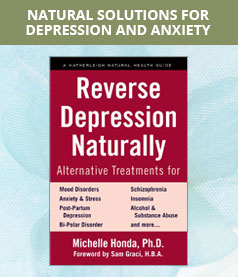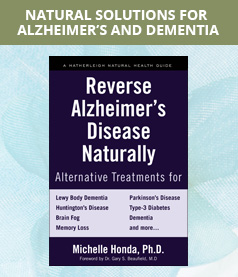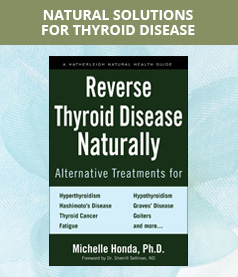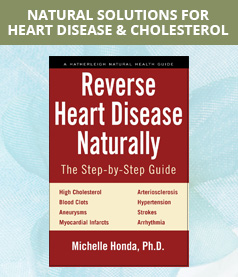
In this section, we will expand on the importance of maintaining brain energy supplies and supporting brain function during the aging process. This will entail discussing the complications of insulin resistance, associated with impaired glucose absorption and metabolism in Alzheimer’s disease. You will also learn about diet interventions and the role of medium chained fatty acids s to enhance ketones, our brain’s preferred food source.
It was once believed that brain function was self-governing, completely independent of insulin. However, it has since been discovered that insulin resistance limits the production of ketones by blocking ketogenesis which in turn affects glucose uptake by peripheral tissues. For this reason, we have learned that type 2 diabetes poses an important risk factor for Alzheimer’s disease due to insulin resistance.
Problem with too much Insulin
Insulin excess blocks our brain’s energy supply by inhibiting the ketogenesis process, its necessary access to long chain fatty acids (stored in adipose tissue) which in turn restricts glucose uptake (the brain’s primary fuel source) as well as ketones (the brain’s back-up fuel). This is a very active area of research, one which is evaluating medium chain fatty acid supplements and their ability to supply the brain with ketones even in the presence of insulin resistance or type 2 diabetes.
Brain Starvation
Emerging treatment strategies for the prevention of brain starvation started over 40 years ago. In 1920, the ketogenic diet was introduced as a cure for epilepsy. More recently, we discovered the unique ability of ketones to replace low glucose supplies,1 and that lower levels of glucose in the brain can be a contributing risk factor of Alzheimer’s disease as well as enhance its progression.2,3,4,5 A concerted effort has been made to clinically develop a keto-neurotherapeutic program that would bypass brain glucose absorption problems associated with Alzheimer’s disease. However, this is still a relatively new area of research, so little is known for certain.6,7,8
Researchers have made a correlation between an infant’s brain, our aging brain, and ketones, recognizing the need for brain fuel during periods of rapid growth. Cunnane and Crawford (2014) share their theories: “We suggest that the energetic (glucose) deficit confronted by the aging brain today is essentially the same as the challenge faced during brain expansion at the dawn of our species and that ketones were part of the solution then as now. Hence, it makes physiological sense to apply what we know about the importance of ketones in early brain development to the challenge of maintaining brain energy supply and brain function during the aging.”
Here we draw attention to supportive research data that definitively shows regional brain glucose hypometabolism is present in those at risk of Alzheimer’s disease and that it is pre-symptomatic decades before the onset of the cognitive impairment associated with Alzheimer’s. It would be incorrect to assume that Alzheimer’s disease is a consequence of irreversible neuronal failure or cell death. Early indications of impaired glucose metabolism are not necessarily the cause of Alzheimer’s or even the first step in its progression; however, two positions are agreed upon: first, Alzheimer’s disease is enhanced or caused by brain fuel starvation (specifically due to brain glucose deficit); and second, early treatment of cognitive decline in the pre-stages of Alzheimer’s by employing ketogenic interventions is scientifically sound, safe and ethical.9,10
Brain Energy Metabolism
Let’s take a brief look at how much energy your brain requires. Collectively, the brain, liver, heart and kidneys consume the greatest volume of energy (approximately 60 percent), clearly dominating the body’s energy supplies. Of this group, the heart and kidneys are more active than the brain, but the brain has greater energy draw even though it only represents (2–2.3 percent) of an adult’s body weight. The brain utilizes 20–23 percent of the body’s total energy requirements. Brain energy metabolism consists of three main features: oxygen consumption, cerebral blood flow and glucose metabolism.
I propose concepts of brain hypometabolism by way of it initiating symptoms of Alzheimer’s disease, exacerbated by advancing cognitive impairment while also being present in the very early stages—well before neurological deficit changes begin. Other theories will show how brain hypometabolism has an effect on glucose metabolism more than ketones and ways to avert and prevent brain deterioration by means of bypassing impaired glucose metabolism.
Alzheimer’s disease is generally viewed as a consequence of neuronal failure, due to the simple evaluation of regions in the brain possessing dead cells, thus requiring less fuel. Areas of the brain patterned for Alzheimer’s are different from other forms of cognitive impairment and from normal aging. This evaluation is inconclusive when one observes multiple risk factors of Alzheimer’s and the simple fact that regional brain glucose is deficient before the onset of cognitive impairment has been diagnosed.
Examples of how low glucose levels may present in patients prior to Alzheimer’s disease include:
• Insulin resistance in young and aging patients
• Family history of Alzheimer’s disease
• Carrier of Pre-senilin-1 mutation
• Carrier of Apolipoprotein E4
• Cognitively normal healthy aging
One indisputable fact has emerged from numerous studies—that deficient levels of regional glucose is present before any measurable impaired cognitive deficit surfaces and therefore is not a result of neuronal cell loss caused by Alzheimer’s disease. We can thus assume that hypo-metabolism of brain glucose can put one at risk of developing Alzheimer’s disease.
Insulin Resistance and Ketogenic Response
There are complications related to an aging brain and ketogenesis. One problem is that low glucose supply is not the same as low brain glucose utilization.
Normally, when blood glucose decreases the process of ketogenesis occurs rapidly in response to lower insulin levels. However, plasma insulin does not typically decrease in accordance to decreased brain glucose utilization. During the aging process, glucose and plasma insulin are mildly elevated, a state known as mild-moderate insulin resistance. Herein lies the problem: a state of hyper-insulinemia naturally inhibits the normal ketogenic response.11 Why this becomes so problematic is the brain is now deprived of both primary fuel sources. There exists enough supportive research today to show that this deteriorating brain cycle is a main contributing factor in brain fuel availability/uptake and brain function that leads to Alzheimer’s disease.
Medium Chain Fatty Acids (MCFA) and Diabetes
Studies involving hypoglycemia induced by insulin infusion and medium chain fatty acids in type 1 diabetics, showed several improved cognitive outcomes.12 In another study MCFA’s lowered blood sugar levels, increasing insulin sensitivity in subjects with type 2 Diabetes.13 In this subsequent study, results suggest obese individuals whether diabetic or non-diabetic, would benefit from the use of MCTA’s as a tool for reducing body fat. Forty participants underwent a 90-day trial resulting in steady body weight reduction, in addition to increased serum C-peptide concentration and other moderate risk factors such as lower serum cholesterol and a reduction of insulin resistance.14
Medium Chain Fatty Acids (MCFA) and Brain Metabolism
The brain is the only organ dependent on ketones as an alternate fuel source to glucose. That said, medium chained fatty acids (like long chain fatty acids) also have a role to play in supplying the brain with energy.
In general terms, fat molecules consist of chains of carbon atoms distinguished by their composed length of carbons. Long chain fatty acids (LCTs) range in length from 16–24 carbons, whereas medium chain fatty acids (MCFAs) are comprised of 4–14 carbon links.
MCFAs go straight to the liver for processing, unlike longer chain fatty acids. Depending on the body’s need, they will be turned into ketones or used as an immediate energy source. Fatty acids need to go through certain metabolic processes before becoming a substrate brain fuel source, whereas ketones can cross the blood brain barrier.
Medium chain fatty acids are naturally found in greater amounts in coconut oil, clarified butter (ghee), palm oil and cheese. Today, MCTAs are readily available as a dietary supplement commonly found in liquid form or capsules. Recently, they have gained popularity among endurance athletes as an energy source.
Even though MCFAs are fats, they are more closely related to carbohydrates—they are easy to digest and burned as energy. This means MCFAs cannot make you fat because they cannot be stored.
Because the general diet for most adults rarely contains medium chain fatty acids, long chain fatty acids like those found in fish and meat instead become the main substrate for ketogenesis. Higher sources of long chain fatty acids are found in fish, green lipped mussels, algae and lesser amounts in nuts and seeds.
MCTAs Are an Effective Substrate
Very high fat diets can also serve as a ketogenic diet when accompanied by low carbohydrate intake. When MCTAs are taken orally, they are primarily absorbed directly from the gut into the portal vein. This in itself provides a more direct route to the liver, whereas long chain fatty acids go through at least two other processes before reaching the liver.
Secondly, medium chain fatty acids do not require carnitine for beta-oxidation, unlike long chained fatty acids (which are carnitine dependent).15
The unique route of MCFAs—compared to other common long chain fatty acids—accounts for its attractiveness in mild to moderate Alzheimer’s disease studies. Studies lasting several months exploring the effects of MCFAs supplementation on cognitive results have garnered great interest due to the ability of ketones to bypass failing brain glucose.16 Single dosage trials have also taken place to extol the benefits of MCTAs, collectively reporting the beneficial effects on cognitive impairment leading up to Alzheimer’s disease.17
Safety of Oral MCTs for Diabetics
While it is true that medium chain triglycerides are saturated fats, in a study observing individuals consuming 30 g/daily for 30 days, MCTs were note seen to adversely affect insulin, serum glucose, cholesterol, triglycerides, body weight, body mass index or free fatty acids.18
Do not confuse ketosis (an acute, severe absence of insulin) associated with type 1 diabetes and nutritional ketosis. Type 1 diabetes describes metabolic ketoacidosis (ketone excess of 15 mM) whereas ketosis references plasma ketones (below 5 mM) which can be safely supplied by short chain fatty acids (MCFAs). Medium chained fatty acids/triglycerides have undergone extensive testing regarding oral consumption by humans and has been well established as safe.19,20
Crucial to an understanding of dementia and Alzheimer’s diseases which affect brain function, related to an understanding of how the brain fuels itself, and how best we can support that metabolic process. For this reason, our discussion when glucose levels could not be met, and our focusing on preventing failing brain energy and its various phases, will be very helpful moving forward.
Continuing on we will look further into the physical mechanisms of the Alzheimer’s disease process, as well as at its reversal process —all through natural sources.
For full reversal protocols check out my recent book “Reverse Alzheimer’s Disease Naturally”.
References
- Cahill G. F., Jr. (2006). Fuel metabolism in starvation. Annu. Rev. Nutr. 26 1–22. 10.1146/annurev.nutr.26.061505.111258. http://www.annualreviews.org/doi/abs/10.1146/annurev.nutr.26.061505.111258
- Hoyer S., Oesterreich K., Wagner O. (1988). Glucose metabolism as the site of the primary abnormality in early-onset dementia of Alzheimer type? J. Neurol. 235 143–148. 10.1007/BF00314304. https://link.springer.com/article/10.1007/BF00314304
- Veech R. L., Chance B., Kashiwaya Y., Lardy H. A., Cahill G. F., Jr. (2001). Ketone bodies, potential therapeutic uses. IUBMB Life 51 241–247. 10.1080/152165401753311780. https://www.ncbi.nlm.nih.gov/pubmed/11569918
- Cunnane S., Nugent S., Roy M., Courchesne-Loyer A., Croteau E., Tremblay S., et al. (2011). Brain fuel metabolism, aging, and Alzheimer’s disease. Nutrition 27 3–20. 10.1016/j.nut.2010.07.021. https://www.ncbi.nlm.nih.gov/pubmed/21035308
- Cunnane S. C., Courchesne-Loyer A., St-Pierre V., Vandenberghe C., Pierotti T., Fortier M., et al. (2016). Can ketones compensate for deteriorating brain glucose uptake during aging? Implications for the risk and treatment of Alzheimer’s disease. Ann. N. Y. Acad. Sci. 1367 12–20. 10.1111/nyas.12999. https://www.ncbi.nlm.nih.gov/pubmed/26766547
- Reger M. A., Henderson S. T., Hale C., Cholerton B., Baker L. D., Watson G. S., et al. (2004). Effects of beta-hydroxybutyrate on cognition in memory-impaired adults. Neurobiol. Aging 25 311–314. 10.1016/S0197-4580(03)00087-3. https://www.ncbi.nlm.nih.gov/pubmed/15123336 7. Henderson S. T. (2008). Ketone bodies as a therapeutic for Alzheimer’s disease. Neurotherapeutics 5 470–480. 10.1016/j.nurt.2008.05.004. https://www.ncbi.nlm.nih.gov/pmc/articles/PMC5084248/
- Krikorian R., Shidler M. D., Dangelo K., Couch S. C., Benoit S. C., Clegg D. J. (2012). Dietary ketosis enhances memory in mild cognitive impairment. Neurobiol. Aging 33 425.e19–425.e27. https://www.ncbi.nlm.nih.gov/pmc/articles/PMC3116949/
- Henderson S. T., Vogel J. L., Barr L. J., Garvin F., Jones J. J., Costantini L. C. (2009). Study of the ketogenic agent AC-1202 in mild to moderate Alzheimer’s disease: a randomized, double-blind, placebo-controlled, multicenter trial. Nutr. Metab. (Lond.) 6:31 10.1186/1743-7075-6-31. https://www.ncbi.nlm.nih.gov/pubmed/19664276
10.Rebello C. J., Keller J. N., Liu A. G., Johnson W. D., Greenway F. L. (2015). Pilot feasibility and safety study examining the effect of medium chain triglyceride supplementation in subjects with mild cognitive impairment: a randomized controlled trial. BBA Clin. 3 123–125. 10.1016/j.bbacli.2015.01.001. - Bickerton A. S., Roberts R., Fielding B. A., Tornqvist H., Blaak E. E., Wagenmakers A. J., et al. (2008). Adipose tissue fatty acid metabolism in insulin-resistant men. Diabetologia 51 1466–1474. 10.1007/s00125-008-1040-x. https://www.ncbi.nlm.nih.gov/pubmed/18504545
- Page K. A., Williamson A., Yu N., McNay E. C., Dzuira J., McCrimmon R. J., et al. (2009). Medium-chain fatty acids improve cognitive function in intensively treated type 1 diabetic patients and support in vitro synaptic transmission during acute hypoglycemia. Diabetes 58 1237–1244. 10.2337/db08-1557. https://www.ncbi.nlm.nih.gov/pubmed/19223595
- Eckel RH1, Hanson AS, 1992.Dietary substitution of medium-chain triglycerides improves insulin-mediated glucose metabolism in NIDDM subjects. Diabetes. 1992 May;41(5):641-7. https://www.ncbi.nlm.nih.gov/pubmed/1568535
- Han JR1, Deng B, Sun J, Metabolism. 2007 Jul;56(7):985-91.Effects of dietary medium-chain triglyceride on weight loss and insulin sensitivity in a group of moderately overweight free-living type 2 diabetic Chinese subjects. https://www.ncbi.nlm.nih.gov/pubmed/17570262
15.Nicola Longo,1,2 Marta Frigeni,1 and Marzia Pasquali2. CARNITINE TRANSPORT AND FATTY ACID OXIDATION Biochim Biophys Acta. 2016 Oct; 1863(10): 2422–2435. https://www.ncbi.nlm.nih.gov/pmc/articles/PMC4967041/ - Henderson S. T., Vogel J. L., Barr L. J., Garvin F., Jones J. J., Costantini L. C. (2009). Study of the ketogenic agent AC-1202 in mild to moderate Alzheimer’s disease: a randomized, double-blind, placebo-controlled, multicenter trial. Nutr. Metab. (Lond.) 6:31 10.1186/1743-7075-6-31 https://www.ncbi.nlm.nih.gov/pubmed/19664276
- Reger M. A., Henderson S. T., Hale C., Cholerton B., Baker L. D., Watson G. S., et al. (2004). Effects of beta-hydroxybutyrate on cognition in memory-impaired adults. Neurobiol. Aging 25 311–314. 10.1016/S0197-4580(03)00087-3. https://www.ncbi.nlm.nih.gov/pubmed/15123336
- Courchesne-Loyer A., Fortier M., Tremblay-Mercier J., Chouinard-Watkins R., Roy M., Nugent S., et al. (2013). Stimulation of mild, sustained ketonemia by medium-chain triacylglycerols in healthy humans: estimated potential contribution to brain energy metabolism. Nutrition 29 635–640. 10.1016/j.nut.2012.09.009. https://www.ncbi.nlm.nih.gov/pubmed/23274095
- Bach A. C., Babayan V. K. (1982). Medium-chain triglycerides: an update. Am. J. Clin. Nutr. 36 950–962. https://www.ncbi.nlm.nih.gov/pubmed/6814231
- Traul K. A., Driedger A., Ingle D. L., Nakhasi D. (2000). Review of the toxicologic properties of medium-chain triglycerides. Food Chem. Toxicol. 38 79–98. 10.1016/S0278-6915(99)00106-4. https://www.ncbi.nlm.nih.gov/pubmed/10685018
Copyright © 2021 – All Rights Reserved – Michelle Honda Ph.D.
Announcement
Look for my new forthcoming books “Reverse Depression Naturally” (Spring 2020) “Reverse Inflammation Naturally” (May 31, 2017) “Reverse Thyroid Diseases Naturally” (June 2018) “Reverse Alzheimers/Dementia Naturally” (Nov.2018) “Reverse Heart Disease Naturally” (Jan.31, 2017) and “Reverse Gut Diseases Naturally Nov. 2016
Where to Purchase:
Reverse Gut Diseases Naturally Nov. 2016
Reverse Heart Disease Naturally Jan. 2017
Reverse Inflammation Naturally May 2017
Reverse Thyroid Disease Naturally June 28/2018
Reverse Alzheimers Disease Naturally Nov. 2018
Reverse Depression Naturally Spring 2020
Hatherleigh Press Page Buy Book RGDN
Local Book Stores in US and Canada
Disclaimer
While close attention was given to the accuracy of information in this article, the author accepts neither responsibility nor liability to any person with respect to injury, damage, loss or any circumstances involving alleged causes directly or indirectly related to the information in this article. The sole purpose is to educate and broaden ones awareness. This information is not meant to replace medical advice or services provided by a health care professional.













Follow Us!